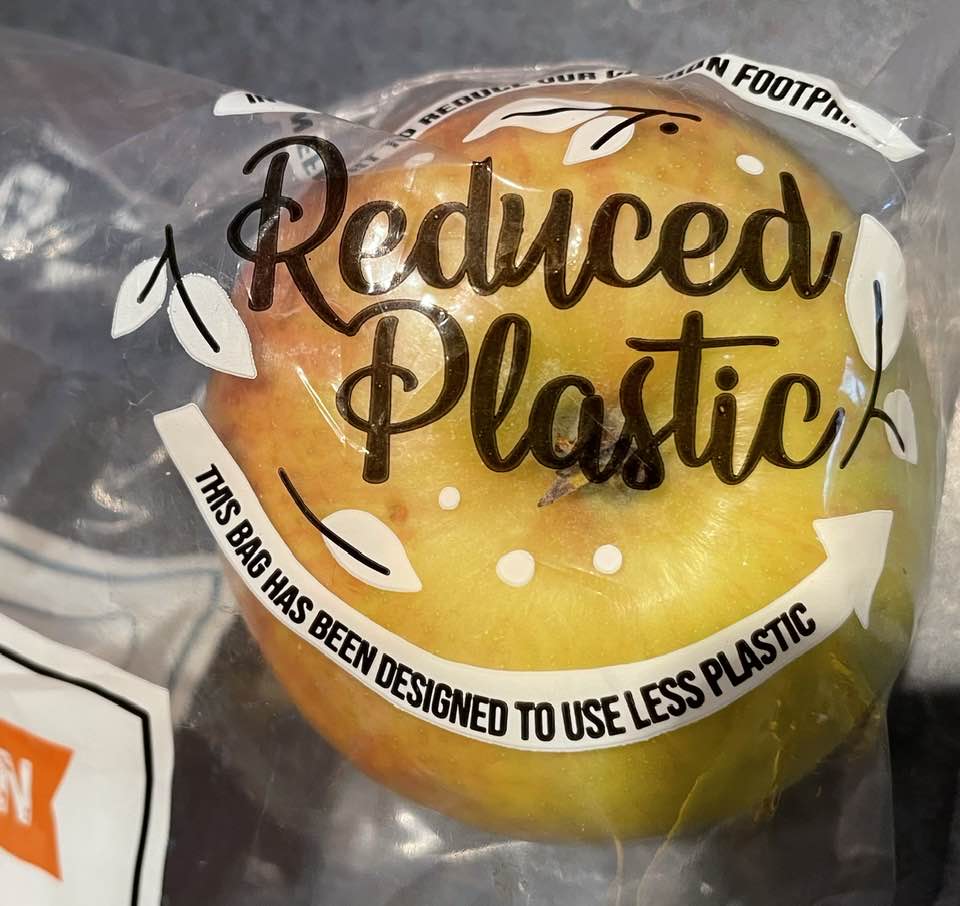MARCH 30, 2023 – One of my big beefs with the free market is that pricing fails to take all costs into account; costs such as environmental cleanup expenses and health care costs ensuing from the East Palestine train derailment; the untold costs of EMS units and law enforcement swat teams called into action every time a mass shooting occurs—not to mention the horrific costs borne by the victims and their loved ones. How will the market factor health and environmental costs into the price of PVC made from the toxic chemicals that made water burn and lit up the Ohio nighttime sky? How will the market adjust the price of AR-15s to reflect their true cost?
And then there’s . . . plastic.
Everyone who’s watched the 1967 film The Graduate remembers the famous line, “I have just one word to say to you: plastics.” Back in the day, use of the term parodied middle class American values and culture. As we don’t have sufficient worries about the environment, now there’s something just as pressing as everything else; “just one word: plastics.”
In the same manner as any person halfway aware of a few of the things going on in the world, I’ve long been aware of the vast islands of plastic afloat in our oceans. Not living close to the ocean and not having witnessed a mass of plastic adrift in saltwater when I’ve found myself within sight of the sea, I must confess that I’ve been largely guilty of the charge, “out of sight, out of mind.”
For a few moments early last September, however, plastics were momentarily very much in sight. A neutropenic fever had landed me in the emergency room a few days after my stem cell transplant. Bedlam reigned around me as I waited my turn. In a pinch, the chief nurse on the scene found a small, vacant office to conduct my intake. She gave new meaning to the term, “multi-tasking” as she managed the overworked staff and herd of patients. During a two-minute break in the frenetic activity, we struck up a conversation and soon found we shared common interests. I learned that she was an accomplished visual artist, and when I inquired further, she described her current project—a large outdoor sculpture made entirely from discarded plastic medical supplies. She said she wanted to call attention to the enormous amount of waste—plastic waste—produced by the medical care industry. Her remark was a reminder of the boatloads—speaking of oceans—of throw-away plastic syringes, containers, dispensers, etc. that had been consumed in the course of my months-long treatment.
Then, just 10 days ago, from a college friend/classmate I received an email about . . . plastics. It contained a link to a fresh report of the Minderoo Foundation/Minderoo Monaco Commission on Plastics and Human Health. His ex-wife was a co-author of the exhaustive report. The executive summary: we need to worry.
Researchers have produced, analyzed and synthesized a wealth of data on the ubiquity of toxic plastics in the ground, air and water and the widespread, detrimental impact on our precious planet and by extension, the harm to human health around the world. The estimated cost of dealing with the global effects is in the hundreds of billions of dollars—annually.
The report is a call to action, beginning with the adoption of a Global Plastics Treaty. At a more elemental level, though, action begins with awareness, education and curtailment of our individual consumption of plastic. We can blame the free market for its failure to price for damages wrought by plastic, but ultimately, we must save ourselves—from ourselves.
(Remember to subscribe to this blog and receive notifications of new posts by email.)
© 2023 by Eric Nilsson
